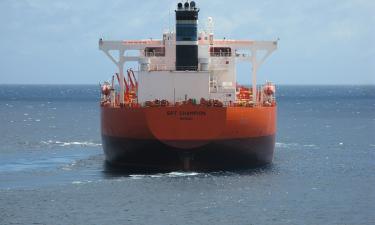IMF needs too much money to rescue eurozone
The IMF will take all possible measures at the meeting of finance ministers of the Group of Twenty and the International Monetary Fund in Washington to help Europe solve its debt problem. IMF Managing Director Christine Lagarde stated that the IMF may need hundreds of billions of dollars to solve this question in case the European crisis aggravates.
The announcement from the International Monetary Fund has not improved the situation on the world markets. Experts believe that the IMF is trying to forecast all possible variants for the crisis to develop in the Eurozone, including the worst scenarios.
Dmitry Nazarov, the chief analyst of the department for the analysis of debt markets of UFS Investment Company, believes that Greece is not the most important factor of danger for the Eurozone at present moment. The possibility for Italy and Spain to suffer from the crisis is much more dangerous, he said.
"If markets lose confidence in the third and the fourth largest economies of the Eurozone, the yield on Spanish and Italian bonds will reach the levels, at which further loans on public markets will become impossible for these countries. Greece, Ireland and Portugal have already asked the EU and the IMF for help. For them, the threshold value of the yield made up 7 percent on ten-year-old bonds. In August of this year, the yield on ten-year-old bonds of Italy and Spain exceeded the dangerous level of 6.0% and neared 7.0%. It was possible to stabilize the situation by means of interventions. However, the European Central Bank may lose control of the situation on the debt market.
"The worst scenario may take place if Italy and Spain repeat the experience of Greece, Portugal and Ireland. Italy will have to pay off the public debt of nearly 1016 billion euros before the end of 2015. For comparison, the amount of payoffs that Greece, Ireland and Portugal will have to make during the same period of time is evaluated at 376 billion euros. We can add the Spanish debt to that (461 billion euros of payoffs before 2015). Therefore, it is obvious that the funds of the IMF and the EFSF will not be enough to get out of the red.
"At present moment, the maximum amount of quotas, or the maximum amount, which the IMF may receive from its members to stabilize the financial situations in other counties, makes up $383 billion. Greece, Ireland and Portugal are the largest borrowers. The loans approved for these countries total $70 billion, and approximately 40 percent of that amount has been earned. Greece, Portugal and Ireland received the total of 286 billion euros. The share of the IMF in the assistance provided to these countries thus makes up 18.0%.
As for the worst scenario, the IMF will have to assign 270 or 370 billion euros to rescue Italy and Spain. Taking account of existent obligations worth $282 billion, the deficit of the IMF's balance may make up $270 billion. If this scenario occurs, the IMF's balance can be increased by raising quotas. However, it is not clear whether higher quotas may minimize the catastrophic consequences that may follow Italy's and Spain's call for help," the expert said.
Thus, the problem which the IMF may face, is about the catastrophic shortage of money for the solution of all problems. The administration of the organization believes that it is possible to overcome the crisis. According to Lagarde, the fund has done a lot to solve key problems. The IMF's managing director is certain that success is just around the corner.
Irina Loseva.
Subscribe to Pravda.Ru Telegram channel, Facebook, RSS!





